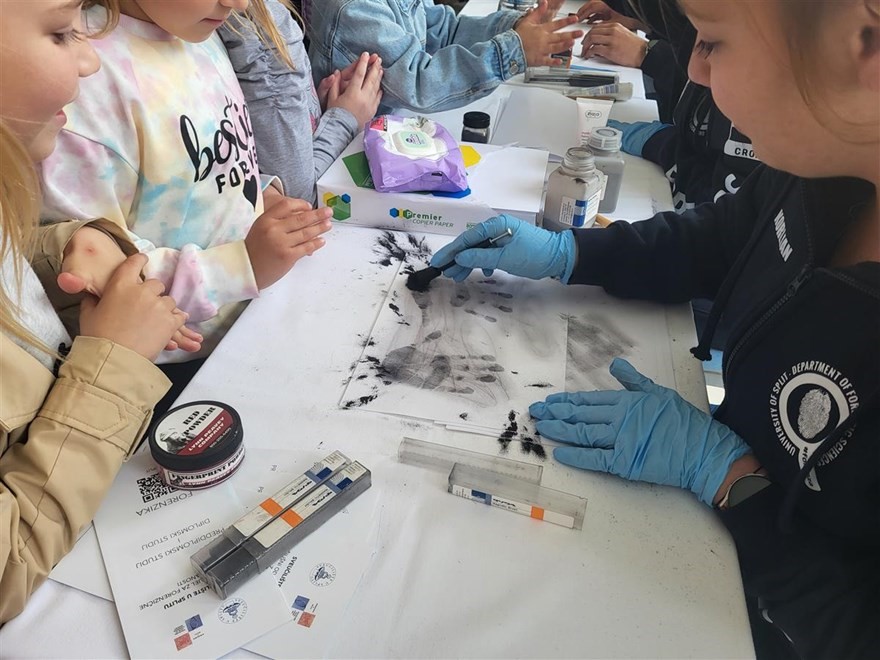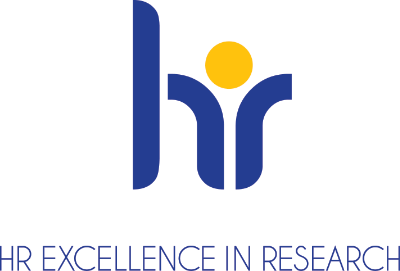The University of Split has been supporting and actively participating in the organization of the Science Festival for 21 years. This event aims to popularize science among the general public by presenting activities and achievements in the field of science, as well as improving the public perception of scientists and motivating young people to engage in research and acquire new knowledge.
The recent themes of the Science Festival have been Colors (2019), Science Culture (2021), Life (2022), and Nature and Society (2023). Due to the global pandemic, the Science Festival was not held in 2020, while in 2021 and 2022, it took place in a hybrid format with numerous video materials that remained accessible to all interested parties.
In 2022, over 150 activities were organized, and in 2023, there was a record interest from young people and the wider public in the Science Festival, with over 200 activities including lectures, workshops, presentations, exhibitions, experiments, panel discussions, roundtable discussions, and other activities. Along with the involvement of the University of Split's faculties, the program included participation from museums, institutes, the Split University Hospital Center, the Teaching Institute for Public Health of the Split-Dalmatia County, kindergartens, elementary and high schools, as well as numerous associations.

The recent themes of the Science Festival have been Colors (2019), Science Culture (2021), Life (2022), and Nature and Society (2023). Due to the global pandemic, the Science Festival was not held in 2020, while in 2021 and 2022, it took place in a hybrid format with numerous video materials that remained accessible to all interested parties.
In 2022, over 150 activities were organized, and in 2023, there was a record interest from young people and the wider public in the Science Festival, with over 200 activities including lectures, workshops, presentations, exhibitions, experiments, panel discussions, roundtable discussions, and other activities. Along with the involvement of the University of Split's faculties, the program included participation from museums, institutes, the Split University Hospital Center, the Teaching Institute for Public Health of the Split-Dalmatia County, kindergartens, elementary and high schools, as well as numerous associations.

The European Researchers' Night is an initiative that has been traditionally held since 2005 in over 300 cities across Europe, with the main goal of bringing science closer to the public. This initiative is part of the Marie Skłodowska-Curie Actions, which aim to promote research and innovation in Europe.
The European Researchers' Night takes place on the last Friday of September and includes various activities such as popular science lectures, workshops, interactive exhibitions, quizzes, laboratory visits, and other events that allow scientists to share their knowledge with the public in a fun and understandable way.
In the past five years, the University of Split has participated as a project partner in the implementation of two editions of the European Researchers' Night, in 2018 and 2019, as part of the Horizon 2020 project Techno-Past Techno-Future (TPTF_ERN), and in 2022 and 2023 as the coordinator of the Horizon Europe project Reconnect Science with the Blue Society (Blue-connect).
In addition to the mentioned information, the University also participated as an associate partner in the virtual activities of the European Researchers' Night in 2020.
The Techno-Past Techno-Future project (2018-2019) successfully implemented a consortium of eighteen partners, including Croatian universities and scientific institutes, led by the Ministry of Science and Education
The first edition of the European Researchers' Night took place on September 30th and October 1st, 2022, under the theme "I Explore", with over 100 prepared activities that involved more than 7000 visitors in the five mentioned cities.
.jpg?vel=110175)
In addition to the European Researchers' Night itself, within the Blue-connect project, numerous activities called "Awareness Strengthening" are continuously carried out. These activities emphasize the importance of research work and promote the main event of the Researchers' Night through various public lectures, panel discussions, and workshops for all age groups. Furthermore, researchers visit elementary and high schools to engage students in understanding scientific achievements and what a research career entails, aiming to stimulate their curiosity and ignite their research spirit.
The European Researchers' Night takes place on the last Friday of September and includes various activities such as popular science lectures, workshops, interactive exhibitions, quizzes, laboratory visits, and other events that allow scientists to share their knowledge with the public in a fun and understandable way.
In the past five years, the University of Split has participated as a project partner in the implementation of two editions of the European Researchers' Night, in 2018 and 2019, as part of the Horizon 2020 project Techno-Past Techno-Future (TPTF_ERN), and in 2022 and 2023 as the coordinator of the Horizon Europe project Reconnect Science with the Blue Society (Blue-connect).
In addition to the mentioned information, the University also participated as an associate partner in the virtual activities of the European Researchers' Night in 2020.
The Techno-Past Techno-Future project (2018-2019) successfully implemented a consortium of eighteen partners, including Croatian universities and scientific institutes, led by the Ministry of Science and Education
The first edition of the European Researchers' Night took place on September 30th and October 1st, 2022, under the theme "I Explore", with over 100 prepared activities that involved more than 7000 visitors in the five mentioned cities.
.jpg?vel=110175)
In addition to the European Researchers' Night itself, within the Blue-connect project, numerous activities called "Awareness Strengthening" are continuously carried out. These activities emphasize the importance of research work and promote the main event of the Researchers' Night through various public lectures, panel discussions, and workshops for all age groups. Furthermore, researchers visit elementary and high schools to engage students in understanding scientific achievements and what a research career entails, aiming to stimulate their curiosity and ignite their research spirit.
In the past five years, the university components have organized and participated in numerous science popularization activities, including: Brain Awareness Week event (School of Medicine in Split); Interactive workshops called Mathematics Evening and Mathematicians in the Museum, lectures and workshops in collaboration with the Split-Dalmatia County and EDIT Code School, scientist visits to schools during the Oceanographers on the Island program (Faculty of Science in Split), The Festival of History, dedicated to the popularization of history and related fields (Faculty of Humanities and Social Sciences in Split).
The Ministry of Science and Education has funded the following science popularization projects: Science on the plate: Mediterranean food, Popularization of Cochrane evidence through voice recordings, Let's See the Ultraviolet, We grow (STEM) with a healthy lifestyle (led by the School of Medicine in Split - amount 96.992,24 euros, amount for Faculty of Electrical Engineering as partner - 32.755,95 euros) and In the embrace of the seaport: containerization and science (Faculty of Maritime Studies in Split); Festival promoting new achievements in the field of technology, IoT Day (Faculty of Electrical Engineering, Mechanical Engineering and Naval Architecture in Split).
The Ministry of Science and Education has funded the following science popularization projects: Science on the plate: Mediterranean food, Popularization of Cochrane evidence through voice recordings, Let's See the Ultraviolet, We grow (STEM) with a healthy lifestyle (led by the School of Medicine in Split - amount 96.992,24 euros, amount for Faculty of Electrical Engineering as partner - 32.755,95 euros) and In the embrace of the seaport: containerization and science (Faculty of Maritime Studies in Split); Festival promoting new achievements in the field of technology, IoT Day (Faculty of Electrical Engineering, Mechanical Engineering and Naval Architecture in Split).




